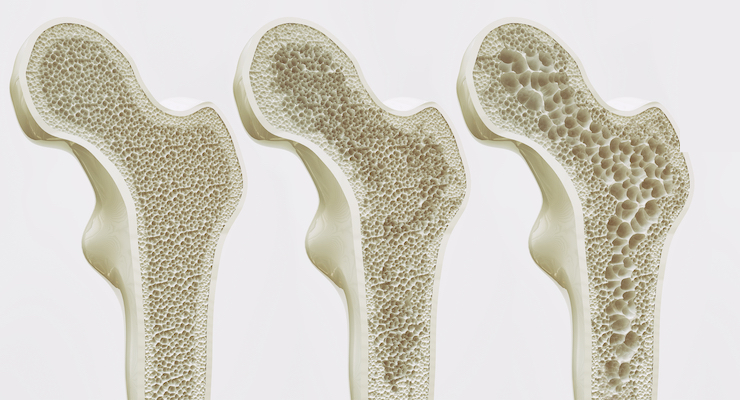Market Updates, Research
Preliminary Study Links Markers of Impaired Bone Health to Vegan Diet
A cross-sectional trial revealed differences in 12 biomarkers which contribute to bone health.

By: Mike Montemarano

According to a cross-sectional study published in the journal Nutrients by researchers from several German universities, participants who were adhering to a vegan diet had lower levels of a number of essential micronutrients, and according to both sonograms and blood tests, had at least 12 differences in biomarkers compared to omnivores suggesting impaired bone health. While the different levels of nutrients observed in broad vegan and omnivorous dietary patterns, a vegan diet may also include healthy constituents which counterbalance negative effects on bone health, and lifestyle factors independent of diet may also influence associations between diet and bone mineral density.
“People are turning to a vegan diet not only due to compassion for animals and awareness of environmental problems but also for health benefits,” the authors of the study said. “Indeed, scientific evidence suggests that a vegan or vegetarian diet may protect against many chronic diseases, e.g., diabetes, cardiovascular diseases, or cancer. However, a vegan diet was found to be associated with lower bone mineral density (BMD), which is associated with a higher fracture risk, compared to omnivores.”
“Consuming a vegan diet arises concern about an inadequate supply of some nutrients, possibly contributing to an impaired BMD in vegans[…] therefore, the present study aimed to investigate the differences in bone health between vegans and omnivores, as measured using quantitative ultrasound.”
The study recruited 36 vegan participants and 36 omnivorous participants who were recorded via calcaneal quantitative ultrasound (QUS) measurements, along with recorded concentrations of nutrition and bone related biomarkers across the two participant groups. The study revealed lower levels in the QUS parameters in vegans compared to omnivores, and vegans had lower levels of vitamin A, B2,, lysine, zinc, selenoprotein P, omega-3 fatty acids, urinary iodine, and calcium levels. However, vegans had higher concentrations of vitamin K1, folate, and glutamine compared to omnivores.
Applying a reduced rank regression, 12 out of the 28 biomarkers were identified to contribute most to bone health – these included lysine, urinary iodine, thyroid-stimulating hormone, selenoprotein P, vitamin A, leucine, a-klotho, omega-3 fatty acids, urinary calcium/magnesium, vitamin B6, and FGF23. Across all of the categories measured, only the bone ultrasound attenuation levels reached statistical significance.
“In conclusion, the study observed differences in bone health between vegans and omnivores, along with differences in biomarkers related to bone health,” the authors of the study concluded. “In addition, an exploratory biomarker pattern was derived that revealed a combination of biomarkers, providing a possible explanation of a reduced bone health in vegans compared to omnivores. Additional studies are required to confirm these findings.”




















